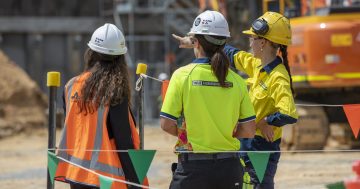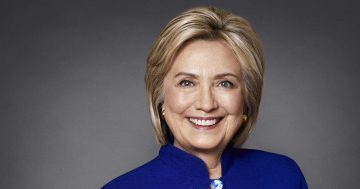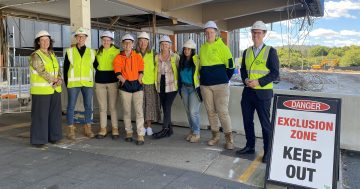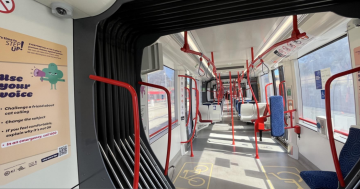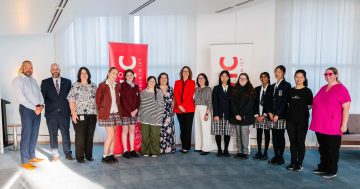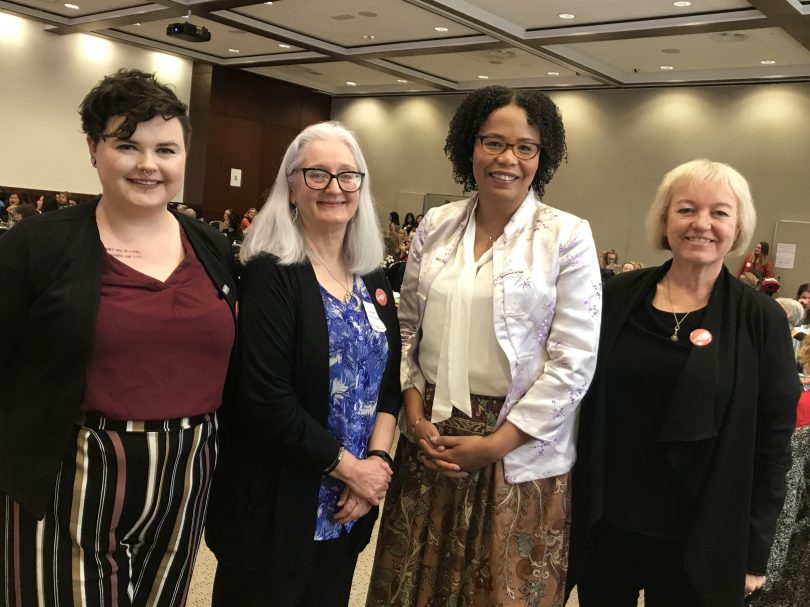
Summit panel speakers C Moore from Women with Disability ACT; Susan Clarke-Lindfield, executive director Toora Women; Cindy Mitchell of Mill House Ventures; and Caroline Hughes, director of Indigenous education, Yurauna Centre CIT. Photos: Genevieve Jacobs.
If it takes a village to raise a child, perhaps it takes a summit of women to helm a city.
On Monday, 150 women from across the ACT gathered to talk about the future and to ensure their voices are heard by those in power.
And while there’s acknowledged progress towards equality on many counts, participants also heard that in some areas, there is a long, long way to go before all women have equal opportunities in the community and their workplaces.
Minister for Women Yvette Berry said that 96 per cent of actions from the government’s first strategic action plan for women were either completed or underway. The summit was intended to engage people who may not previously have had a chance to participate in conversations about the future at this level, where strong ideas could inform the next action plan for 2020-22.
“We wanted to give them the chance to be part of change in the ACT,” Ms Berry said. “The government should lead by example and put actions into places it’s responsible for. But if the community is also on board, together we can achieve real change.
“That’s an important message to get across more generally: what can I do at home, in my neighbourhood, personal life or workplace or school to achieve real change for women and girls in the ACT? Whether it’s in the shops where someone gives you casual gendered conversation, there is still a long way to go.”
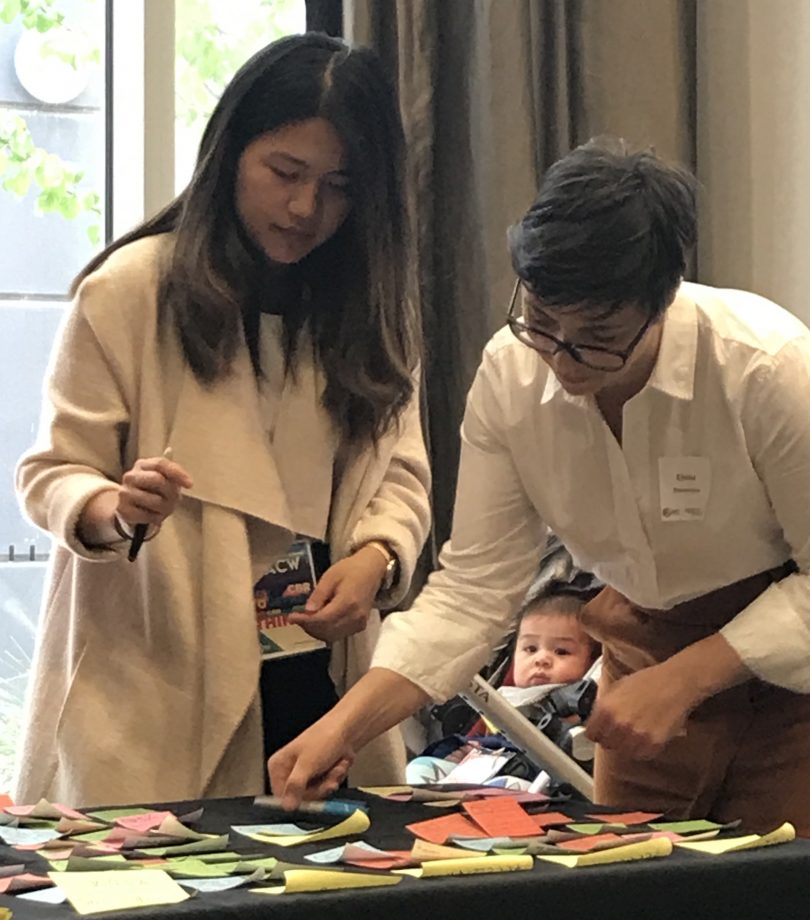
The information collated at the summit will go towards the next strategic action plan for ACT women.
The summit heard from the University of Canberra’s 50/50 by 2030 Foundation that in the past decade, Australia had slipped from 15th to 39th place among 149 nations on equity measures despite a world’s best ranking in women’s education outcomes.
Dr Pia Rowe from the 50/50 by 2030 Foundation said it had been presumed that as women’s workplace participation and education levels increased, they would naturally take their place in leadership roles. That hasn’t happened.
Women are still a minority in Parliament and critically under-represented in board rooms and as CEOs, despite research showing that the four most trusted Australian politicians are Penny Wong, Julie Bishop and Tanya Plibersek, while the clear winner in the trust stakes is New Zealand Prime Minister Jacinda Ardern.
With regard to childcare and housework, Dr Rowe said one-in-three men believed that it was important to maintain traditional gendered roles “so that families function well and children are properly supported”.
The backwards slide on beliefs about equality was particularly noticeable in men aged between 25 and 39, who were most likely to attribute women’s success in the workplace to “political correctness”, rather than talent or equity, and to believe that women became less likeable when they assumed leadership positions.
Discussion at the summit on Canberra women and their place in the community centred on five themes:
- Improving mental health and wellbeing of women and girls
- Fostering gender equity in Canberra workplaces including equality in leadership and participation
- Developing accessible services and programs, including those from diverse backgrounds
- Building a community where women and girls are safe to participate, and
- Improving housing support and reducing homelessness.
A panel of speakers discussed achieving equity while factoring in women’s experience with disability, as entrepreneurs, with family violence and homelessness and as Indigenous women.
The summit’s outcomes will go towards the development of the ACT Government’s second action plan for women, spanning the next three years.
“This isn’t a competition with men,” Ms Berry said. “The facts are in front of us that there is inequality for women and girls. Forty-four women have died in family violence incidents this year. There are gendered issues in our community, but we are all in this together. We can all make change together.”












